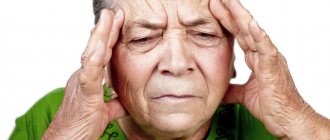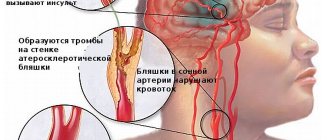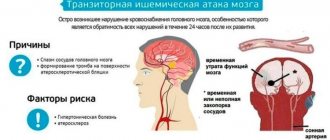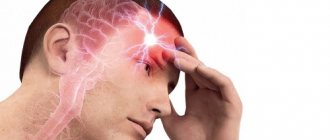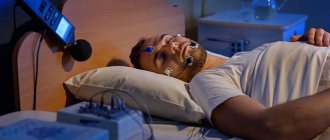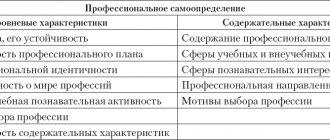With rapid blockage of the arteries that supply the human brain, a serious circulatory disorder occurs that occurs in the cells of this organ. This process is called a stroke and it occurs very often in people who suffer from alcohol addiction. It is important to note that many patients who have suffered this disease remain disabled for life (especially alcoholics). Therefore, you should pay attention to signs of stroke in men with alcoholism, since this condition can quickly lead to impaired blood circulation in the brain.
When the arteries are severely clogged, a person suffers from many symptoms of a stroke, so even a heavy drinker can determine the presence of pathology.
Alcohol as a risk factor
As a rule, when identifying the causes of a stroke, doctors pay special attention to risk factors that can affect blood circulation in the brain. Genetic predisposition, age over 55 years, excess body weight, etc. can affect the development of stroke.
How are stroke and alcohol related? Among the factors that provoke the disease, regular abuse of alcoholic beverages occupies a special place. This is due to the property of ethyl alcohol to have a detrimental effect on the vascular system. Experts have identified several reasons that, in combination with alcohol abuse, can provoke certain types of stroke. Against the background of alcoholism, blood vessels become fragile, arterial and capillary walls lose their elasticity and the likelihood of their perforation increases.
Atherosclerotic changes in blood vessels
Long-term abuse of alcoholic beverages can provoke the development of atherosclerotic changes in blood vessels caused by the formation of cholesterol plaques on the walls. Such growths can break off and move along the bloodstream, which can also lead to blockage.
In addition, alcoholics often experience other pathological processes in the body. Quite often, such patients are diagnosed with sudden jumps in blood pressure. This is due to the property of alcohol to expand the vascular lumen, which leads to a decrease in pressure. When the dose of ethyl alcohol taken is increased, an increase in blood pressure is observed.
The walls of the vessels begin to sharply contract, which leads to a narrowing of the venous lumen, and pressure levels in the arteries increase. All this leads to perforation of the vascular walls.
To drink, not to drink, or how alcohol affects patients after a stroke
Stroke is defined as an acute cerebrovascular accident. During the pathological process, disruption of the functioning of cerebral vessels and death of cerebral structures occurs. The reason for this condition is the fragility of blood vessels and disturbances in their tone.
There is a widespread myth about alcohol as a panacea for treating problems with blood supply structures, but is alcohol really so beneficial?
Let us answer right away that you can drink red wine without significant harm to your health, but not immediately and in small doses. Next, we looked at the effects of other popular drinks on the circulatory system and explained our conclusion.
We recommend reading the article about the possibility of smoking after a stroke.
After taking even a minimal dose of ethyl alcohol, a change in the tone of the blood vessels is observed: they become more elastic, they expand, and the blood, without meeting resistance, moves at high speed along the bloodstream. The number of heartbeats increases. The main “pump” of the human body works more actively. The pressure in the vessels drops. Blood pressure in the dilated vessels of the brain also decreases; this factor can have a beneficial effect on the condition of a patient affected by a stroke.
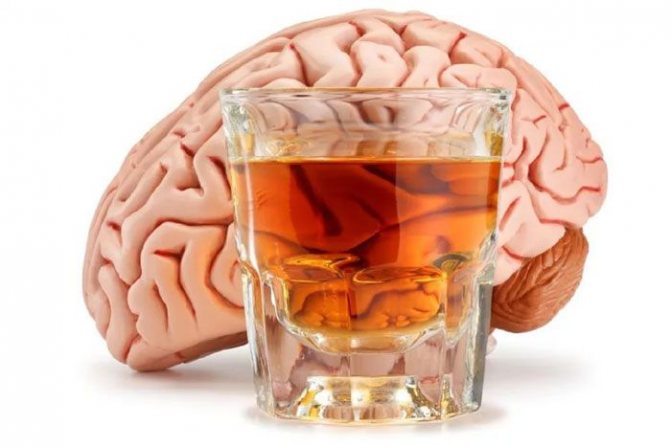
However, there is a big “but”. Half an hour to an hour after taking the minimum dose of red wine, beer, vodka, whiskey and other strong alcohol, the reverse process is observed. Vascular structures become stenotic, the entire circulatory system wears out:
- The pressure in the bloodstream increases due to the fact that stenotic veins and arteries become hypertonic.
- Drinking alcohol and increasing blood pressure lead to headaches, and headaches are only part of the problem. The heart rate remains at the same level, but the blood is not able to overcome the resistance of the narrowed arteries. Accordingly, blood pressure continues to rise. This is a direct path to a second stroke, directly provoked by alcohol.
This state after drinking alcohol persists for 7 hours. Only at the end of this period is ethanol metabolized and eliminated from the body naturally.
If the patient has consumed a large amount of alcoholic beverages (no matter red wine, vodka, beer or other products), the adrenal glands begin to work more actively. The body produces large amounts of stress hormones: cortisol, adrenaline, norepinephrine. They increase the tone of blood structures, make arteries and veins fragile, and increase capillary permeability.
Long-term use of ethanol affects brain activity, causing lethargy and decreased intelligence. Thrombosis begins.
Thus, alcohol consumption causes sharp fluctuations in vascular tone and rapid jumps in blood pressure.
Read more about the connection between alcohol consumption and headaches in this article.
Among the consequences of ethanol intake are:
- Instability of blood pressure. Alcohol dilates blood vessels, but then they sharply narrow, which negatively affects the state of the cardiovascular system as a whole.
- Repeated stroke. It is provoked by sudden changes in blood pressure and an increase in the tone of blood structures (arteries and veins).
Finally, a possible consequence is the development of alcoholism - physiological dependence on alcohol.
Why is it undesirable to indulge in alcohol during a stroke?
- There is a high risk of increased capillary permeability. This contributes to the formation of hematomas.
- Does alcohol dilate or constrict blood vessels? Both, but in turn. Blood pressure inevitably rises. As has been repeatedly noted, first vascular tone decreases, the arteries dilate, then the tone then increases and persists for a long time. An additional negative effect is produced by stress hormones.
- Vascular thrombosis is noted. Red blood cells clump together and blood clots form, which can clog the vessel and cause secondary stroke damage. It is known that in persons who have suffered a cerebral infarction, the blood formula changes, the biological fluid thickens, and the concentration of hemoglobin increases.
- There are disturbances in the functioning of the heart. A persistent arrhythmia develops. Thus, one of the consequences of ethanol consumption is a possible heart attack.
- In addition, alcohol is incompatible with antihypertensive drugs. Blood pressure instability and repeated cerebral infarction are possible; the consequences are unpredictable. You cannot combine alcoholic beverages with medications to lower blood pressure.
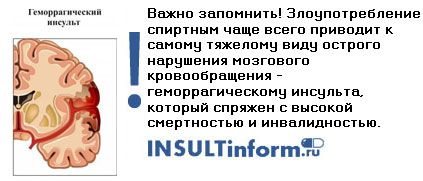
Alcohol is extremely dangerous for stroke survivors.
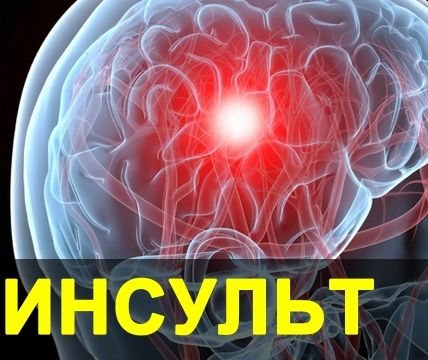
A new remedy for the rehabilitation and prevention of stroke, which is surprisingly highly effective, is the Monastic Collection. The monastic collection really helps fight the consequences of a stroke. Among other things, tea keeps blood pressure normal.
Does this mean that people with stroke are prohibited from drinking ethyl alcohol, and stroke and alcohol are incompatible? No, that's not true.
Is it possible to drink alcohol after a stroke? The answer is twofold. In the first few months, it is really better to stop drinking alcohol: there is a high risk of relapse and secondary cerebrovascular accident. During this period, active drug treatment is carried out.
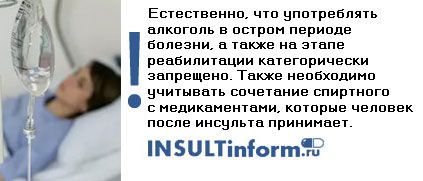
You can return to drinking ethanol after six months or so. It makes no sense to completely give up alcohol, since ethanol and other components of alcoholic beverages also have a positive effect on the cardiovascular system and the body as a whole, but what?
- In small quantities, ethanol, due to its ability to have a dual effect on blood vessels, trains veins and arteries (affects blood vessels). They become more elastic and quickly restore their tone.
- The blood composition is normalized. It becomes more fluid.
- Ethyl alcohol affects blood pressure, reducing it. However, alcohol at high blood pressure, especially if we are talking about hypertension and stage 2-3 hypertension, is absolutely contraindicated.
- Alcohol products increase the body's resistance to infections and normalize the functioning of the immune system.
- Lipid metabolism is normalized, ethanol fights atherosclerotic plaques.
Alcohol and stroke are compatible , including with high and high blood pressure (at the first stage of hypertension). But you can’t drink it right away. The factors described above are valid only for moderate consumption of ethanol and only if the alcohol is of high quality.
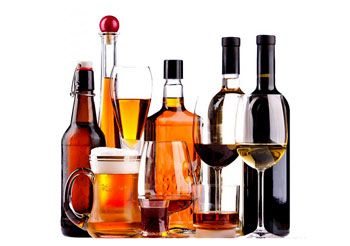
And here the question becomes relevant: what to drink, what alcohol can be used for therapeutic purposes and in what dosages?
- Red wine. Red wine made from natural grapes, and not “recycled materials” (so-called “wine materials”) has the ability to reduce vascular tone, has a dilating effect on blood structures, and increases immunity. Fully red wine can produce the entire range of beneficial effects described above. However, you can consume no more than 20 ml (about two tablespoons) per day. Red wine contains a large number of natural components and is considered the most preferred drink, and also safe.
- White wine. Has the opposite effect.
- Vodka. Pure ethanol. How does vodka affect the condition of blood vessels? Unlike red wine, it is too strong and therefore dangerous for blood vessels. Vodka increases blood pressure and is not able to reduce vascular tone. You should absolutely not drink it.
- Cognac. Also overly strong. It is not recommended to use it.
- Beer. The drink has no beneficial properties, and causes a lot of harm, since it sharply constricts the blood vessels of the brain. Beer increases blood pressure, and vascular stenosis is possible and even probable.
- Champagne. The nature of the action is identical to beer.
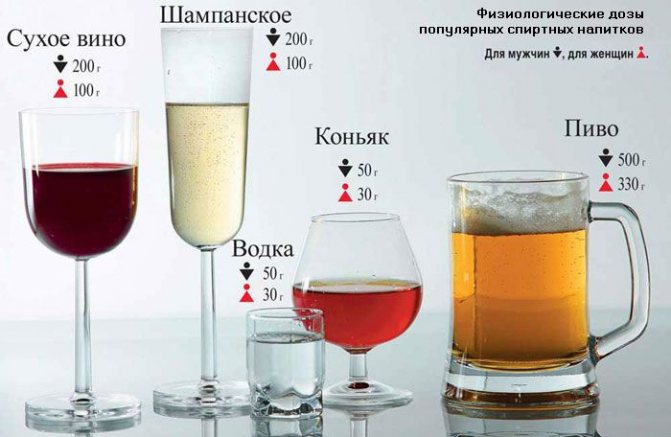
Not all alcohol is beneficial, and blood vessels will not always react positively to drinking alcohol.
Summarizing:
- Only red wine can be consumed.
- Beer, vodka, whiskey, champagne, white wine and other drinks are strictly contraindicated.
In addition, the possibility and advisability of drinking alcohol is influenced by a number of factors:
- Patient's age.
- Health status.
- Frequency of use.
- Alcohol quality.
- Weight.
- Floor.
Alcohol can be a good assistant in the treatment of secondary hypertension, but only after the end of the main rehabilitation period, when the body's systems have returned to normal after a stroke.
You can only drink red wine and only in moderate dosage.
Despite the above, it is recommended to consult a doctor before drinking alcohol. Much depends on the health status and characteristics of the individual patient’s body. It is possible that a stroke will become the basis for a lifelong “withdrawal” from the use of ethanol.
Many household restrictions for stroke patients are discussed in this article.
Strokes are the cause of almost 70% of all deaths in the world. Seven out of ten people die due to blocked arteries in the brain. And the very first and main sign of vascular blockage is a headache!
Blockage of blood vessels results in a disease under the well-known name “hypertension”, here are just some of its symptoms:
- Headache
- Increased heart rate
- Black dots before the eyes (floaters)
- Apathy, irritability, drowsiness
- Blurred vision
- Sweating
- Chronic fatigue
- Swelling of the face
- Numbness and chills in fingers
- Pressure surges
Attention! If you notice at least 2 symptoms, this is a serious reason to think about it!
The only remedy that gave significant results. READ MORE. >>>
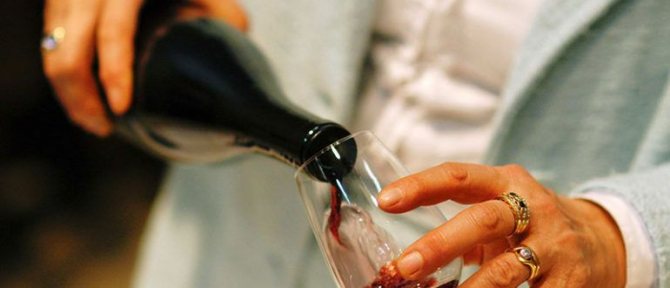
Drinking alcoholic beverages or even alcoholism is considered a fairly common cause of hemorrhagic stroke. Alcohol and stroke are frequent prerequisites for the formation of serious complications of acute cerebrovascular accident, including death.
Alcohol is a heavy load on the heart and blood vessels, which are already damaged. Therefore, it will only make the situation even worse, but not everyone agrees with this, leaving the dispute open.
After a stroke, you should not drink alcohol. A more popular justification for alcohol abuse is the fact that alcohol promotes vasodilation.
The system of alcohol’s effect on blood vessels is that in the first stage there is a sharp dilation of blood vessels, after which in the second stage they rapidly narrow.
After a stroke, the blood vessels of the brain become fragile due to insufficient blood supply.
Any load on the vessels can be a factor in secondary hemorrhage ; for this reason, stroke and alcohol are incompatible.
Regular consumption of alcoholic beverages can cause significant problems. Alcohol is considered a factor:
- development of cardiovascular diseases: heart disease, thinning of vascular walls; atherosclerosis, creation of blood clots;
- loss of control over well-being and sensations , which does not allow a person to identify signs of illness;
- increasing cholesterol levels in the blood , creating fatty plaques on the walls of blood vessels, gaining excess weight;
- increased blood pressure and blood sugar, which is considered a condition for the formation of a stroke.
Alcohol contains toxins that destroy red blood cells that carry oxygen in the blood, as a result of which gas exchange is disrupted. Drinking alcoholic beverages and fatty foods increases the risk of hypertensive crisis. A person who is a patient of a neurologist understands that stroke and alcohol are considered an unsafe combination. These risk conditions can be attributed to an existing medical condition that can cause a stroke.
There are statistics that about 80 percent of patients who drink alcohol after a stroke die. The mortality rate for non-users has been reduced to 60.
IMPORTANT! Drinking alcohol, even in small doses, during such a period is extremely unwise, but it is never too late to start an active and healthy lifestyle.
Vodka is pure ethanol . Its use immediately after a stroke will inevitably lead to serious consequences, including death. Therefore, drinking vodka after a stroke is strictly not recommended. Otherwise, this will lead to subsequent spasm of the arteries, increasing the risk of developing vascular complications.
Harm to the heart muscle
In addition to the vascular system, alcohol also causes destruction to the heart muscle. Over time, muscle transforms into fat tissue. As a result, blood is unable to move through the vessels, which increases the likelihood of blockage.
Alcohol consumed in large quantities can affect the functioning of the organs of the hematopoietic system. Medical experts say that drinking alcohol negatively affects the functioning of the entire body. Among other things, alcoholics are prone to diabetes, which, in turn, can lead to stroke. You shouldn't joke with alcohol.
The first symptoms of a stroke
A stroke occurs due to a disruption in the blood supply to the blood vessels of the brain. A precursor to a stroke is a transient cerebral circulatory disorder or a transient ischemic attack. The main symptoms of such disorders are headache, weakness and dizziness. In more severe cases, nausea and vomiting begin.
People often ask: “Can you drink alcohol if you have a stroke?” More on this below.

Among women
The most common signs of stroke in women are:
- Sudden loss of vision.
- Violation of coordination functions.
- Weakness of the limbs.
- Impaired understanding of words and loss of speech function.
- Hyposensitivity.
- Increased intensity of manifestation of the listed symptoms.
Quite often, a woman with a stroke exhibits a number of nonspecific symptoms, which significantly complicates the diagnosis of the disease and does not make it possible to provide medical assistance in a timely manner.
What are the signs of stroke in men caused by drinking alcohol?
Modern doctors have proven that alcohol-containing drinks can easily cause a stroke in a man.
Therefore, drinking alcohol is considered the most well-known factor that can cause the appearance of this pathology. The signs of an alcoholic stroke can be compared to the general symptoms of the disease. These include:
- deterioration in speech quality;
- headache that develops in attacks;
- impaired human coordination;
- impaired facial expressions;
- excessive sweating;
- disruption of brain function;
- redness of the skin (this is especially common on the face);
- deterioration of hearing and vision.
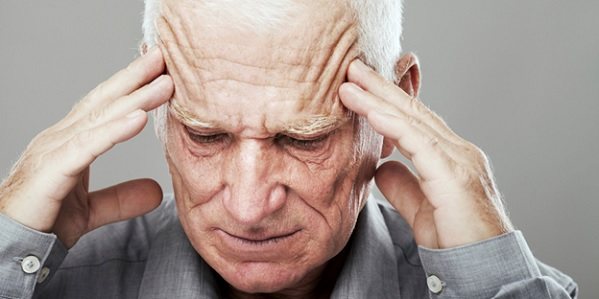
It is important to note that in people suffering from alcoholism, the weight of the heart is slightly greater than in others, because this organ, together with the liver, begins to become overgrown with fatty deposits, which aggravate its work and do not allow the blood flow in the optimal amount to penetrate the brain.
In men
In men, a stroke manifests itself with the following symptoms:
- Severe headache, in some cases accompanied by vomiting.
- Dizziness and weakness.
- Violation of visual and speech perception.
- Confusion.
If a stroke affects a certain part of the brain, then disturbances will occur in that part of the body for which this area was responsible.
Doctors identify a number of symptoms for which you should immediately call an ambulance. It is important to remember the time of onset of symptoms, as this will be of particular importance when choosing a therapeutic regimen. Simple tests for the presence of a stroke are:
- Please smile - against the background of a stroke, the smile is distorted.
- Ask to keep your hands raised. As a result of muscle weakening, this will be difficult to do.
- Ask the person to say a simple sentence. A patient with a stroke will speak slowly and hesitatingly, resembling the speech of a drunk.
- Please stick out your tongue. During a stroke, the tip of the tongue deviates towards the affected area of the brain.
In ischemic stroke, the symptoms are similar to the hemorrhagic type, but their duration is several minutes.
So, are stroke and alcohol compatible?
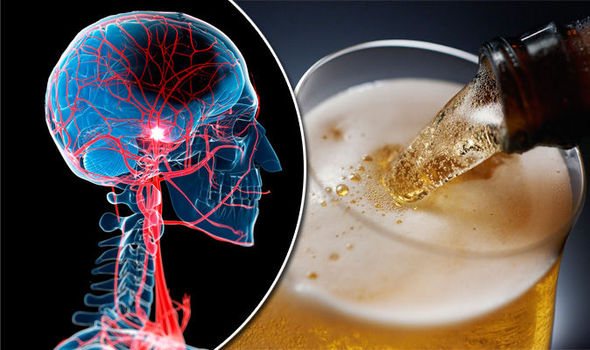
Symptoms
There are two possible options for the course of an alcoholic stroke: with a clear clinical picture and in an erased form.
Typical stroke symptoms are characterized by general cerebral symptoms in the form of stupor or loss of consciousness, headache with nausea, vomiting, and dizziness. A person loses orientation in time and space and cannot answer the simplest questions.
These symptoms are aggravated by focal ones, they depend on which part of the brain is affected by ischemia or hemorrhage, but should be alerted by loss of sensitivity, numbness or paralysis of the limbs on one side (hemiplegia), muscle weakness (hemiparesis), difficulty speaking or its absence, slurredness.
An unsteady gait, a feeling of objects spinning around, a person may see double, vision fields narrow, objects lose clarity and color (“floating”) are very likely.
At the prehospital stage, the mnemonic U.D.A.R (smile, movement, articulation, decision) or U.Z.P. (smile, speak, raise a limb) will help recognize a stroke, and therefore it is advisable for everyone to know them.
The erased form of stroke develops most often within the boundaries of binge drinking or in the early hours of recovery from it. The patient complains of a headache, severe dizziness, which does not allow him to raise his head or change his body position.
Weakness, apathy, weakness, moderate but constant nausea, and sometimes vomiting are also typical. A person feels hemiparesis as muscle fatigue, hemiplegia may not be present, but quite often there is asymmetry of the face and protruding tongue, difficulties in pronouncing words, especially with hard and hissing sounds.
Unfortunately, this type of stroke often remains unrecognized by loved ones, and the alcoholic himself perceives it as a need to “get drunk.”
More harm or benefit
Many patients ask the question: “Is it okay to drink alcohol if you have a stroke?” Contrary to popular belief about the harmful effects of alcohol on the body, including the vascular system, not all types of alcoholic beverages are really that harmful. In some cases, drinking alcohol after a stroke can have a positive effect on a person's condition. The main thing is to follow a few rules:
- Alcohol after a stroke is allowed to be consumed only in strictly limited quantities.
- Before you start drinking alcohol, you should consult a specialist.
What alcohol can you drink after a stroke? A small amount of light dry wine can have a beneficial effect on the functioning of internal organs, as well as improve the quality of blood, slightly thinning it, which will help avoid the formation of blood clots and help normalize blood circulation. The standard dose of alcohol after a stroke is 150 ml of dry red wine.
So is it possible or not to drink alcohol after a stroke?
Against the background of hypertension, wine can be consumed no more than twice a week, which contributes to the following positive aspects in the body:
- Prevention of coronary heart disease.
- Improvement of the vascular system.
- Normalization of fibrinogen synthesis.
- Prevents the formation of cholesterol plaques.
A special place among the alcoholic beverages allowed after a stroke is given to cognac. It is allowed to consume no more than 50 g of the drink daily, but this should not coincide with taking medications. This amount is enough to increase brain activity and restore pressure in the arteries.
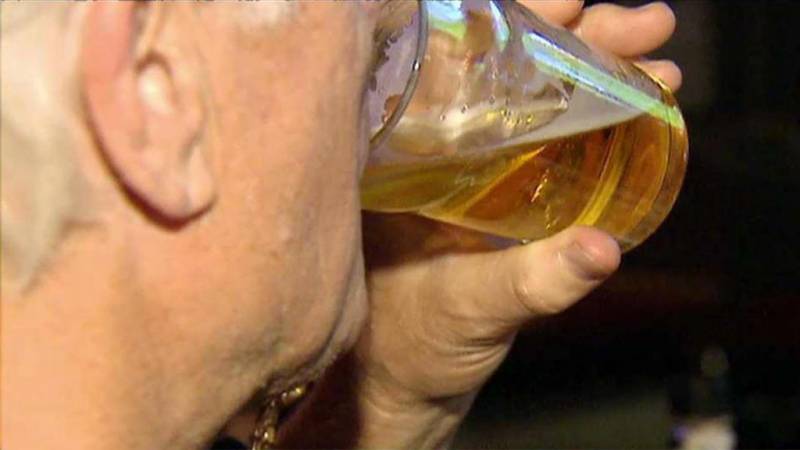
Causes
Several factors influence the formation of background pathologies, the progress of which leads to ischemia or hemorrhage.
Alcohol consumption causes an increase in vascular pressure, and it may not be noticed by a person, since compensatory mechanisms are activated, but at the micro level its effect is obvious.
Chronic disturbances of micro- and then macrocirculation lead to weakening of arterial walls, which further aggravates the problem of hypertension and leads to the formation of atherosclerosis. Both alcoholic stroke and other types of strokes are in most cases a response to atherosclerotic changes.
Alcohol consumption increases blood clotting, which leads to the formation of blood clots, for which atherosclerotic changes are a favorable environment.
The effect of alcohol on the liver in terms of alcoholic stroke is to disrupt the functioning of “liver” blood clotting factors, which again overlaps with atherosclerosis and thrombus formation, increasing the risk of aneurysms, cardiogenic thromboembolism, and bleeding.
It is estimated that drinking more than 60 grams of ethanol (in terms of wine, vodka, beer) per day increases the risk of ischemic stroke by 1.7 times, and hemorrhagic stroke by 2.2 times.
Alcohol after a stroke: consequences
The hemorrhagic type of stroke is always accompanied by the development of bleeding inside the brain. This occurs due to a violation of the strength and elasticity of the vascular walls located in the brain. In addition, oxygen deficiency and nutrient deficiency occur in the tissues, which is explained by the narrowing of the lumen.
Patients who are at the stage of rehabilitation after a stroke need to understand how alcohol will affect the body as a whole and the functioning of individual organs and systems.
Are stroke and alcohol compatible? The consequences are of interest to many patients. If we are talking about a large amount of alcohol, then this can cause various pathological processes, including:
- Destruction of brain centers that are responsible for the processes of narrowing or dilation of blood vessels.
- Increased pressure in the arteries.
- Reduced blood flow, blockage of blood vessels and possible recurrence of stroke.
In addition, the consequence of drinking alcohol after a stroke can be an increase in cholesterol levels in the blood, which significantly increases body weight. If you drink alcohol uncontrollably and in large quantities, you can get a second stroke, the course and complications of which will be much more severe than in the first case.
The compatibility of stroke with alcohol is very relative.

Diagnosis and treatment
In the event of a stroke, it is better to play it safe and, even with minor signs reminiscent of a stroke, transport the person to the hospital by ambulance.
Encephalography, computed tomography, magnetic resonance imaging are the leading methods of differential diagnosis. After clarifying the diagnosis, blood tests are performed to assess the level of cholesterolemia, ECG, and ultrasound of the carotid arteries.
A mandatory condition for treatment is complete abstinence from alcohol.
Treatment consists of emergency care, which begins at the prehospital stage and continues until the main parameters of hemodynamics and neurological status are stabilized, and then the rehabilitation period begins.
Drugs that normalize blood pressure, rheological parameters (anticoagulants, antiplatelet agents), vascular parameters, and antioxidants are used.
Many patients require long-term post-stroke rehabilitation; pharmacological, exercise therapy, speech therapy, stimulation of processes of restoration of neural connections.
Alcohol after rehabilitation
Quite often, patients after a stroke completely give up drinking alcohol, returning to the bad habit after completing the rehabilitation period.
It takes at least one year for the body to fully recover after a stroke. However, the end of this period does not mean that the patient can begin to live as before and drink alcohol in the same quantities as before the stroke. The best option would be to get additional advice from a specialist, who will most likely suggest postponing a return to alcohol for some time.

Is it allowed to drink alcoholic and non-alcoholic beer?
Beer constricts blood vessels in the brain and increases blood pressure, which can lead to stenosis. Non-alcoholic beer, it would seem, should not contain alcohol, which means it can be consumed.
However, it contains other substances that are harmful and difficult for a sick body (for example, gases), so it is not recommended to drink it. An exception can be made when the patient has alcoholism and the craving for alcohol is too great.
Cognac is the most healthy drink because it has a positive effect on blood vessels and the stomach when consumed in moderation.
Its daily dose should be limited to 50 grams . This is quite enough to enhance brain activity and equalize blood pressure, so there will be no consequences as a result.
Wine has a positive effect on metabolism and the activity of red bone marrow. Red wine is a good stimulant for the heart muscle .
But you can only drink one glass. That is, 150 ml per day is allowed, no more than 2 times a week. In this case, wine stimulates the activity of blood vessels, begins to thin the blood and prevents ischemia.
Choose dry wines; they do not contain sugar, which is undesirable for the body after a stroke.
In the first couple of months after a brain stroke, you should completely forget about alcohol, even red wine. This requires active restoration of the body with the help of medications, exercise therapy, and physiotherapy.
After six months or a year, you can gradually start drinking alcohol, but only in small doses. Even after your health is fully restored, you must not forget that excessive alcohol consumption harms your body.
It is recommended to drink alcohol no more than 2-3 times in one month. Available dosage:
- vodka – 50 g;
- cognac and whiskey – 50 g;
- wine – 150 g;
- beer – 300 g.
You do not need to drink the entire dose at once. It is recommended to stretch it throughout the evening.
We invite you to watch a useful video on the topic:
It is best to ask your doctor about the timing. Each person is individual. A quick return to an addiction is influenced by gender, age, weight, quality and frequency of use. Only a specialist knows your individual medical history and can give correct recommendations.
Post Views: 269




